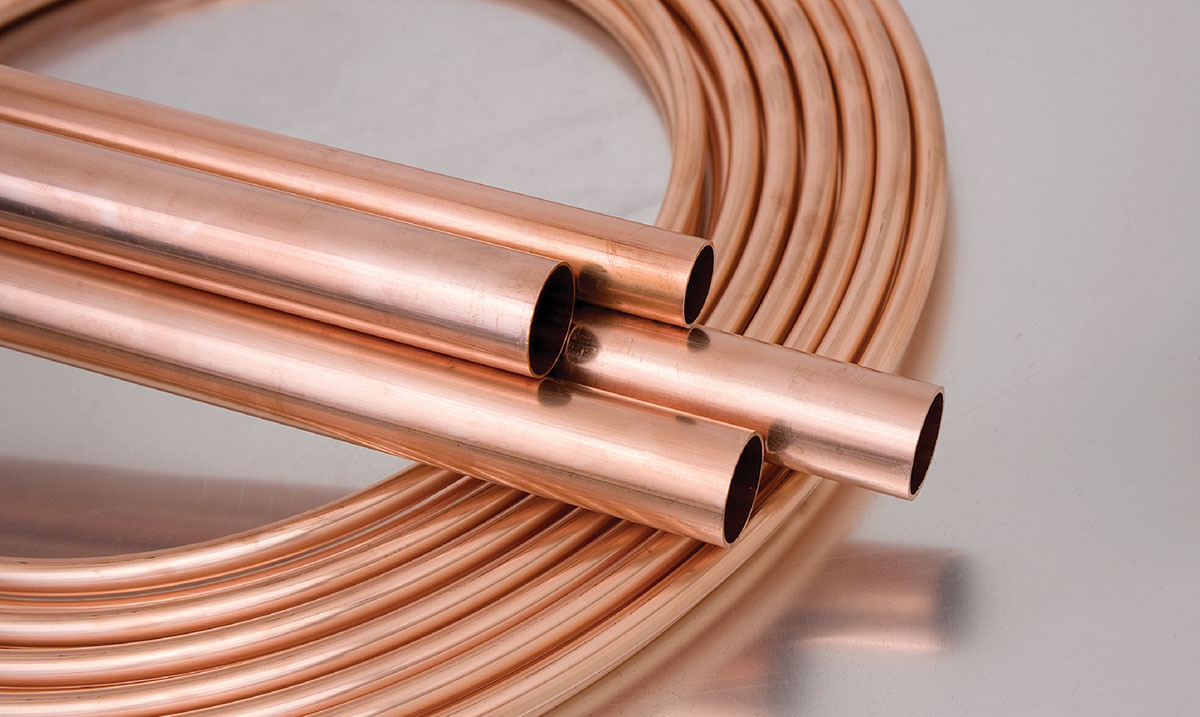Top Trends in Home Decoration Featuring Stylish and Functional Copper Products
Top Trends in Home Decoration Featuring Stylish and Functional Copper Products
Blog Article
Checking Out the Diverse Applications of Copper Products in Modern Industries
Copper products have actually developed themselves as essential elements across a myriad of modern sectors, mainly as a result of their exceptional conductivity, malleability, and resistance to corrosion. From improving the performance of electrical systems to playing an essential role in renewable resource modern technologies, the adaptability of copper appears. In addition, its recyclability placements it as a sustainable choice in production and electronics. As sectors progressively focus on innovation and sustainability, the diverse applications of copper necessitate a closer examination, specifically regarding their prospective influence on future technological improvements and environmental techniques.
Electrical Applications of Copper
Copper is an essential material in the electrical industry, representing roughly 60% of the overall demand for non-ferrous metals around the world - Copper Products. Its remarkable electrical conductivity, which is almost two times that of light weight aluminum, makes it the recommended choice for a variety of electrical applications. From wiring systems in property and industrial structures to high-voltage power transmission lines, copper guarantees efficiency and reliability in electricity distribution
In addition to circuitry, copper is integral to the production of electric components such as electric motors, generators, and transformers. These parts utilize copper's thermal conductivity and pliability, vital for warmth dissipation and efficient performance. Copper's resistance to corrosion improves the lifespan and longevity of electric systems, making it an affordable solution in the lengthy term.
The growth of renewable power sources, such as solar and wind power, has even more raised the demand for copper in electric applications. As industries shift towards sustainable power options, copper's duty comes to be even a lot more vital. On the whole, the versatility and performance qualities of copper strengthen its standing as a cornerstone material within the electrical industry, driving development and performance throughout different applications.
Pipes and Piping Solutions
In contemporary pipes systems, the option of products significantly influences both functionality and long life. Copper has actually become a preferred alternative as a result of its distinct homes, including rust resistance and antimicrobial characteristics. These characteristics make sure that copper piping continues to be long lasting and secure for transporting safe and clean water, a crucial factor to consider in household and industrial applications.
Among the key advantages of copper in plumbing is its capability to stand up to high temperatures and pressures, making it appropriate for a range of applications, from warm water systems to heating and cooling down networks. Additionally, copper's versatility enables less complicated installment in intricate piping formats, lowering the threat of leakages and failures.
One more noteworthy benefit is copper's long lifespan, frequently going beyond half a century with correct maintenance. This longevity not only decreases replacement expenses yet additionally contributes to lasting methods by lowering waste. Furthermore, copper's recyclability straightens with modern-day ecological requirements, advertising a round economic climate within the plumbing sector.
Copper in Renewable Resource
The convenience of copper expands past pipes applications, playing a vital role in the renewable power sector. In solar panels, copper is made use of in photovoltaic or pv cells and circuitry, assisting in efficient power conversion and transmission.

Additionally, as the worldwide demand for electrical automobiles (EVs) boosts, copper's role in battery systems and billing infrastructure comes to be much more considerable. The product's ability to carry out electrical energy successfully is integral to the performance of EV batteries, boosting variety and charging speed.
Copper's Function in Electronics
Electronics manufacturing relies greatly on copper's outstanding homes, specifically its high electrical conductivity and thermal efficiency. These features make copper a perfect option for a large range of electronic components, including adapters, motherboard, and wiring. The steel's capability to successfully send electric signals guarantees very little energy loss, which is important in high-performance digital tools.
In addition, copper's thermal conductivity plays a considerable function in warm dissipation, shielding delicate elements from overheating. This is especially vital in contemporary electronic devices, where compact layouts cause enhanced warm generation. Copper is additionally favored for its pliability and ductility, enabling it to be easily formed right into intricate resource layouts that fulfill the demands of innovative digital applications.
With the rise of customer electronics, telecommunications, and electric lorries, the demand for copper in the electronics field continues to grow. Therefore, copper continues to be a cornerstone product in the ever-expanding area of electronics.
Innovative Utilizes in Production

One noteworthy application remains in additive manufacturing, where copper-based products are employed in 3D printing procedures. This enables the development of lightweight elements and complex geometries, particularly in the aerospace and vehicle sectors. Furthermore, copper's thermal conductivity makes it an ideal option for heat exchangers, improving effectiveness in industrial air conditioning systems.
In addition, the rise of smart production has seen the consolidation of copper in IoT tools, where its conductive capacities support sophisticated picking up technologies. In the realm of eco-friendly power, copper is pivotal in the production of photovoltaic panels and wind turbines, helping with a lot more reliable power conversion and circulation.
As industries pursue sustainability and advancement, copper's adaptability and efficiency click here for more proceed to position it as a critical material, driving advancements in manufacturing and contributing to the development of smarter, more effective products.
Conclusion
In summary, copper products show remarkable convenience throughout different contemporary markets. Copper Products. Their exceptional conductivity boosts electrical applications, while deterioration resistance makes sure dependability in plumbing. The integral role of copper in renewable resource and its crucial function in electronic devices highlight its significance in advancing sustainable methods. In addition, innovative uses in making highlight copper's versatility and withstanding relevance. Jointly, these applications illustrate copper's essential payment to technical progress and commercial performance in contemporary society.
From boosting the effectiveness of electric systems to playing a vital role in sustainable power modern technologies, the convenience of copper is apparent. As sectors increasingly prioritize innovation and additional hints sustainability, the diverse applications of copper call for a closer examination, especially concerning their potential effect on future environmental methods and technical improvements.
The development of renewable power resources, such as solar and wind power, has additionally increased the demand for copper in electrical applications. In general, the adaptability and efficiency characteristics of copper solidify its status as a foundation product within the electric market, driving innovation and performance across various applications.
The flexibility of copper prolongs beyond plumbing applications, playing an important role in the eco-friendly power sector.
Report this page